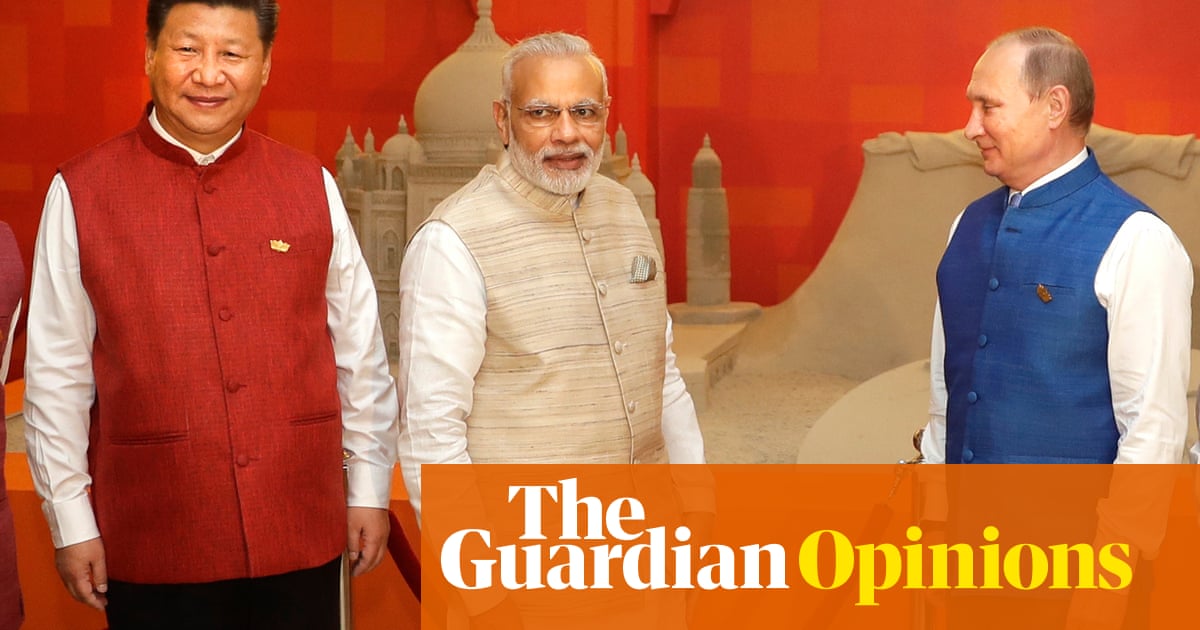
Last week, Chinese President Xi Jinping’s historic visit to the United Arab Emirates signified the growing relationship between Abu Dhabi and Beijing, which took off in 1990 when the UAE’s founding father, Sheikh Zayed, became the first Gulf Cooperation Council leader to visit China. After leaving the UAE, Xi travelled to Senegal, Rwanda and South Africa to attend the 10th BRICS summit. This tour is extremely important for Beijing and for the Gulf States as they look further at Africa’s development.
Strategically located between the West and the Far East, and between Europe, Russia and Africa, the UAE’s geography, vibrant economy, political stability and cutting-edge logistics infrastructure have made Abu Dhabi and Dubai invaluable trading hubs linking the BRICS members. The UAE has played a pivotal role in connecting China and Russia to the “Global South,” with 60 percent of Sino-Emirati trade being re-exported to Africa and the Middle East.
Abu Dhabi’s ties with BRICS countries have major security dimensions, too. Jihadist activity is increasing in several African countries, threatening BRICS’ vested interests. China and Russia are playing a more assertive role in Africa with respect to counter-terrorism initiatives. The UAE’s increasingly influential role in post-Qaddafi Libya’s evolving security architecture, along with its port in Berbera and its investments in Ethiopia and Eritrea, are illustrative of Abu Dhabi’s determination to play a constructive role in Africa.
China and Russia’s interests in Libya, as well as the Bab Al-Mandeb and Gulf of Aden, now under threat by Iran, put Beijing, Moscow and Abu Dhabi in the same camp with respect to a host of raging conflicts and terror threats in Africa’s failing or failed states.
Shifts in the international geopolitical order are bringing Arab Gulf states, especially the UAE and Saudi Arabia, closer to their Asian partner.
Dr. Theodore Karasik
On its 10th anniversary, the BRICS are entering a new phase. As South Africa’s six largest source of oil and a major agricultural and metals market, the UAE is extremely important to Pretoria. The UAE’s recently announced plan to invest $10 billion in South Africa highlights Abu Dhabi’s determination to play a pivotal role, along with China and Russia, in the country’s development. Five years ago, discussions were held in the UAE regarding its place in the bloc’s future. Thus, the UAE and South Africa’s mutual economic interests have also led to Abu Dhabi and Pretoria exploring a more robust defense partnership to anchor the two countries’ security cooperation in Central Africa and elsewhere.
The status of China and India as rising powers cannot be ignored by Arabian Gulf states, especially given how Asian-Gulf energy cooperation is set to increase in the years ahead. Russia for its part has demonstrated its ability to influence heavily conflicts in the Levant while heightening its role in Africa. Thus, the new geopolitical and geo-economic realities against the backdrop of the declining US influence in the Middle East and the Horn of Africa are now being realized by a dramatic shift east of the global economic center. The UAE’s Look East approach to trade has led to Abu Dhabi elevating its economic and financial importance to China and India to new heights.
Overall, Xi’s visit to the UAE and throughout Africa and his attendance at the BRICS summit is part of a larger geo-strategic and investment picture. The ongoing boost in Sino-Emirati ties is about BRICS and the future of this bloc. Shifts in the international geopolitical order are bringing Arab Gulf states, especially the UAE and Saudi Arabia, closer to their Asian partner.
While there are absolutely no signs that Abu Dhabi and Riyadh will abandon their close alliance with Washington, the unpredictability of US foreign policy is leading Abu Dhabi to hedge its bets and look to BRICS members as an alternative to achieve long-term commercial goals from Pretoria to Beijing.
Dr. Theodore Karasik is a senior adviser to Gulf State Analytics in Washington, D.C. He is a former RAND Corporation Senior Political Scientist who lived in the UAE for 10 years, focusing on security issues. Twitter: @tkarasik
Disclaimer: Views expressed by writers in this section are their own and do not necessarily reflect Arab News" point-of-view








